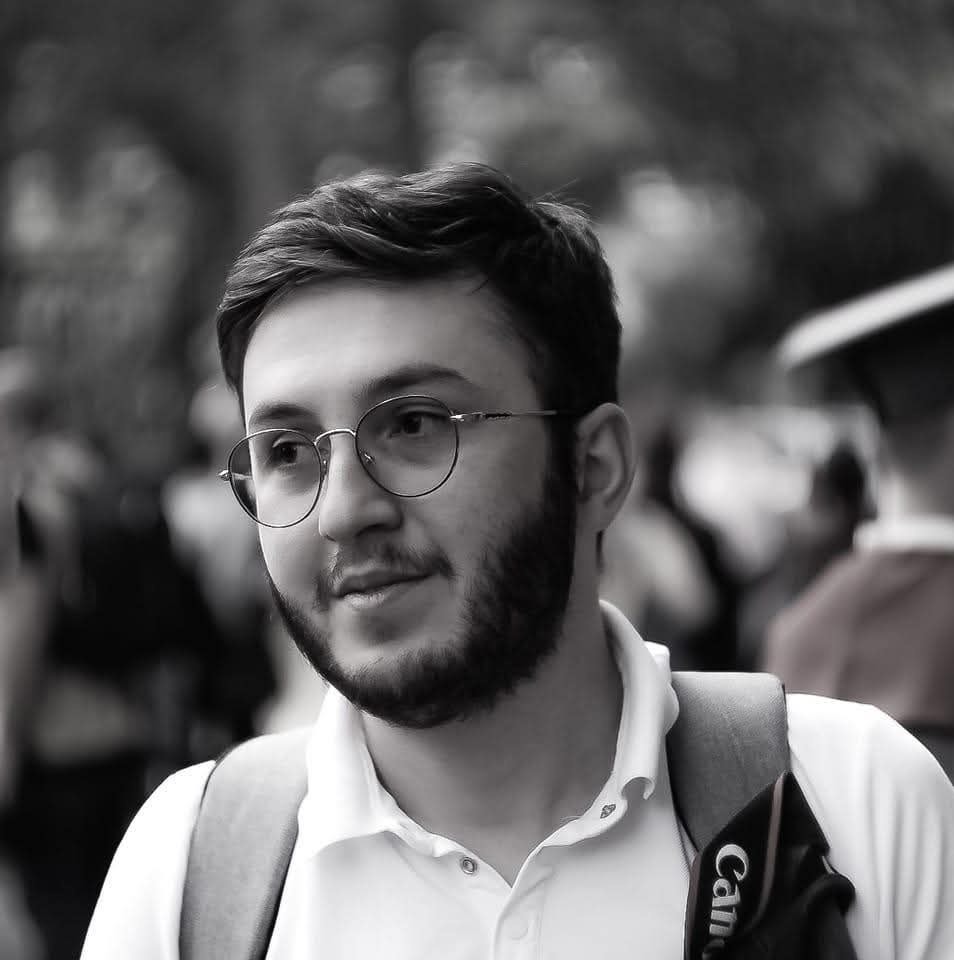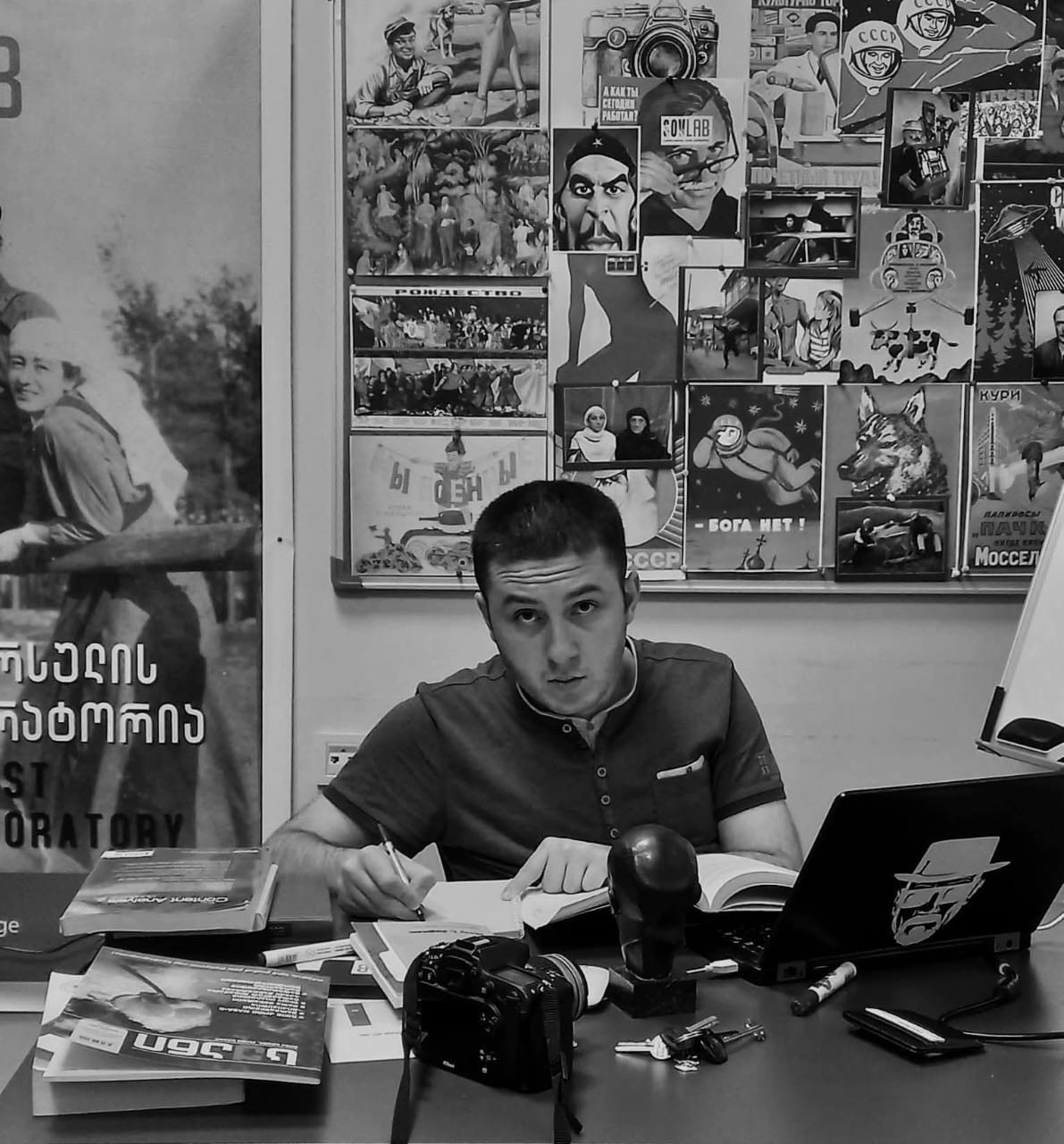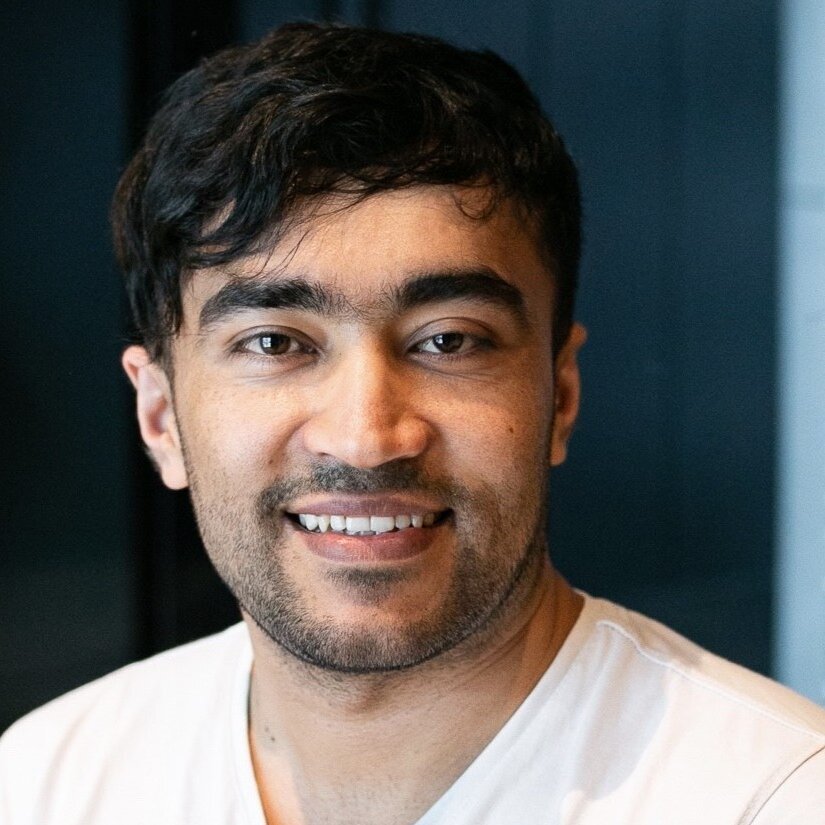Preserving the past: the academic trying to stop Georgia from rewriting its Soviet history
Badri Okujava, 28, was a researcher at the Soviet Past Research Laboratory when his work took a different turn. He had begun his academic career as a political science student, studying totalitarian regimes and Georgia's Soviet past in particular. But when the Georgian government blocked his access to the national archives – the source for his team's research – Badri and his colleagues were pushed into activism. With the archives closed, he now fights the disinformation and myths which have grown up around Soviet history.
In your opinion, what’s the most important aspect of Georgia's Soviet past to educate Georgians about?
Joseph Stalin. In Gori, Georgia, where he was born, there is still a state-run museum which glorifies him. Russia’s disinformation campaign claims Georgians should be proud because Stalin was Georgian. It calls him the greatest leader in history. We try to show he was as evil as other dictators and to highlight his role in the Soviet occupation of independent Georgia in 1921. When we interview and talk to the older generation of Georgians, they recall that in the Soviet past they had jobs and health insurance, which they may not have now. But actually they did not have such things back then. They feel nostalgic about that time. But they overlook that they lacked freedom and human rights.
Why are so many people falling prey to this incorrect view of history?
School books in Georgia don't mention the dark side of Soviet-Georgian history. And Georgia's ruling party (Georgian Dream) is hiding the truth from that era as a method of oppression.
Given such organized tactics, how do you educate the public?
We use Facebook, which is the main platform for political discussions among Georgians, along with Instagram and TikTok, which are popular among the younger generation. We create fact-checking content on posts there, based on accurate data. We also research Soviet mass terror, like the Stalinist Red Terror, at the Soviet Past Research Laboratory (SovLab). But in the last four years, the government has blocked our access to archives, which limits our work. We’ve joined the mass protests in Tbilisi to object to this decision.

What messaging do people respond to most?
It depends on their age. For the younger generation, who are less connected to the Soviet past, I tell them that if you stop fighting for your rights, one day you’ll wake up and there will be no democracy. For older generations who, unlike younger generations, watch mostly government-run media and TV, I advise them not to trust the state media, which spreads propaganda, and to seek other sources of information to understand both sides of the reality.
What personal opposition have you faced so far?
Russia and the ruling party in Georgia work together, sharing similar narratives and propaganda. They’ve labelled us ‘enemies’ for trying to promote the truth. Civil activists, including my friends, are increasingly attacked in the streets or protests. Three weeks ago, the GD government declared our research institute a 'foreign agent’. And In 2021, the Russian Foreign Ministry accused it of "trying to make a false history". They have both declared us to be a number one enemy in Georgia.
How do these restrictions and pressures impact your work?
Government restrictions are actually working – the number of people contacting us or joining our activities is decreasing because they’re portraying us as evil. For example, at our meeting today there were just 10 school children, whereas three years ago there were 20. But while we’re seeing less engagement from younger people, our content is becoming much more popular in the age group from 25 to 40. When I analyze data from social media platforms, it seems that people really like what we are doing. Support is increasing. Both younger and older generations helped us recently through crowdfunding when we faced financial problems due to Donald Trump's USAID's aid cut to SovLab. People want to know the truth about the past.
Given the rise of authoritarian powers globally and the direction of travel in the US, how do you see the future of your struggle against disinformation?
It's worrying. Our capacity to act is increasingly limited, on the one hand by the state here in Georgia, and on the other by declining international support. My friends and I are anxious. I hope that, in five years, Georgia won’t have ended up as an authoritarian regime like Russia or Belarus.
What personal opposition have you faced so far?
Russia and the ruling party in Georgia work together, sharing similar narratives and propaganda. They’ve labelled us ‘enemies’ for trying to promote the truth. Civil activists, including my friends, are increasingly attacked in the streets or protests. Three weeks ago, the GD government declared our research institute a 'foreign agent’. And In 2021, the Russian Foreign Ministry accused it of "trying to make a false history". They have both declared us to be a number one enemy in Georgia.
How do these restrictions and pressures impact your work?
Government restrictions are actually working – the number of people contacting us or joining our activities is decreasing because they’re portraying us as evil. For example, at our meeting today there were just 10 school children, whereas three years ago there were 20. But while we’re seeing less engagement from younger people, our content is becoming much more popular in the age group from 25 to 40. When I analyze data from social media platforms, it seems that people really like what we are doing. Support is increasing. Both younger and older generations helped us recently through crowdfunding when we faced financial problems due to Donald Trump's USAID's aid cut to SovLab. People want to know the truth about the past.
Given the rise of authoritarian powers globally and the direction of travel in the US, how do you see the future of your struggle against disinformation?
It's worrying. Our capacity to act is increasingly limited, on the one hand by the state here in Georgia, and on the other by declining international support. My friends and I are anxious. I hope that, in five years, Georgia won’t have ended up as an authoritarian regime like Russia or Belarus.



